Legal fraternity takes up environmental issues
Lawyers discuss the role of law to stop environmental degradation and cybercrimes
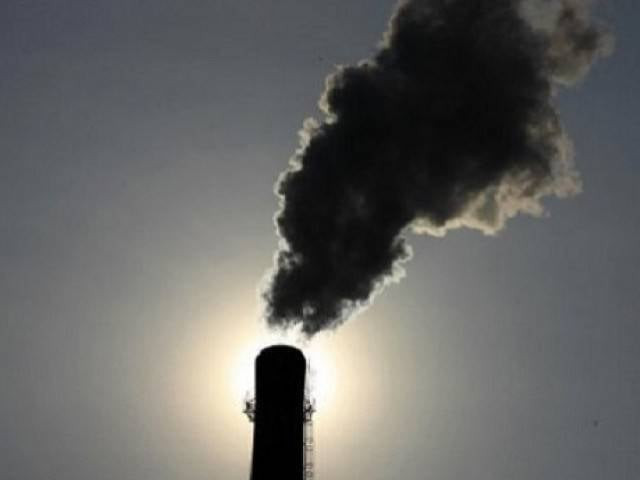
PHOTO: AFP
The judges, lawyers and civil society representatives expressed their views in three separate sessions pertaining to constitutionalism and human rights as well as the cyber and environmental laws. The justices of Sindh High Court, retired judges of the Supreme Court, senior lawyers and office bearers of Supreme Court Bar Association and Sindh Bar Council were among the panellists.
"Things can be done to improve the environment and the [civic] if someone dares to own the things," observed Justice (Retd) Amir Hani Muslim, chairperson of the Supreme Court mandated water commission who chaired the session on environmental laws. He found fault with the government for failing to raise awareness about environment in the people, who commonly contribute to the pollution without knowing the consequences.
Environmentalists call for promoting cycling
"We seem to lack even an iota of awareness. Not just in Sindh but in the whole country," corroborating his assertion, he contended that even the authorities which regulate the environment like Sindh Environment Protection Agency (SEPA) lack grasp of the subject. He added that the agency needed capacity building, manpower and resources to enable it to improve enforcement of the laws.
He said that more than 12,000 tons of waste is thrown into the sea and the Indus River and its off-taking canals are being polluted at more than 500 locations in Sindh. Commenting of the drought hit Tharparkar, he informed that among some 834 reverse osmosis plants (RO plants) in that district only 239 were functional. And, he added, 50 of some 86 large RO plants are operating in Tharparkar.
"But the RO plant isn't a solution," he underlined, finding the supply of canal water through the pipelines as the acceptable alternative. The SEPA's Regional Director Munir Ahmed Abbassi acknowledged that the under capacity has clipped the wings of the agency.
"The lack of staff, offices, equipment and vehicles is affecting the performance of SEPA," he revealed. According to him, so far 152 cases have been filed against environmental offenders in the Sindh environment tribunal while 384 complaints have been logged with the judicial magistrates. He suggested that environment management centres should be established in all districts of Sindh to provide information on the subject to the people besides carrying out sensitisation exercises regularly.
Ali Akbar Rahimo, an environmental activist, spoke about the adverse impacts of coal extraction and power generation that will harm the people, environment, flora and fauna of Tharparkar in the long run.
Young children think big, finding heroes in small acts
Cyber laws
Although lacunae exists in the Prevention of Electronic Crimes Act, 2016, people are still not familiar with the existing provisions of the law and how to avail them for the remedy, said advocate Ali Palh of RightsNow Pakistan. In his presentation he dwelt on the nature of crimes that are committed in cyber space and the provisions of the Act which penalise the offenders.
Sindh High Court Justice Fahim Ahmed Siddiqui pointed to the misuse of the social media by giving an example of how fake messages including religious messages are being spread without checking their authenticity. "The human intelligence seems to be ending. It's being replaced by artificial intelligence," he observed. "But, we ought to save our intelligence while availing the artificial one."
Advocate Tariq Aziz Memon of Sindh Law College said the cyber offences are the rapidly growing crimes. He said around 44 million people use Internet in Pakistan and a majority of them can become victim of such crimes because of less awareness about cyber space and the laws protecting its users.
He asked the people to report to the Federal Investigation Agency (FIA) over its helpline or through email if they become a victim of such crimes.
Haroon Baloch of Bytes for All, a non-government organisation working on the digital rights, said debate over the rights on the cyber space has aggressively started in Pakistan. "We have come to know that our electronic communication systems are under constant surveillance of the state and non-state actors besides facing another threat of the cybercrimes."
He advised the judiciary to conduct the capacity building training of the judges to familiarise them with the cyber world and the laws regulating it.
Preserving ecosystem: Snow leopard day celebrated
Constitutionalism
Barrister Palwasha of Rasheed Razvi Centre for Constitutional and Human Rights spoke on the separation of powers and exercise of the suo motu jurisdiction in Pakistan. "In the global South, separation of powers is interpreted in a different way," she contended. "The suo motu jurisdiction makes the courts guarantor of the human rights whereas in the West the government and bureaucracy is that guarantor."
She said the concept of the socio-economic rights has also emerged from the third world countries. She, however, bewailed that in the countries like Pakistan the law practitioners have been slow in adding more rights in the corpus of rights.
Pakistan Tehreek-e-Insaf's MNA Lal Malhi said the federal government has taken up the issue of enforced disappearance. He saw an improvement in the rights of the minorities but called for more legislation like on the subject of alleged forced conversions of Hindu girls.
Advocate KB Laghari questioned how, in countries like Pakistan where the socio-economic conditions of its citizens are at great variance, can equal rights be ensured all the people. "When the socio-economic conditions aren't equal, how can the rights be equal?"
Published in The Express Tribune, November 9th, 2018.


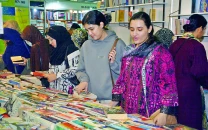

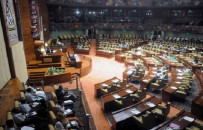
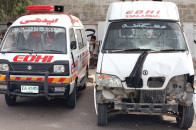
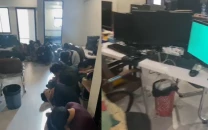


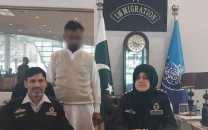









COMMENTS
Comments are moderated and generally will be posted if they are on-topic and not abusive.
For more information, please see our Comments FAQ